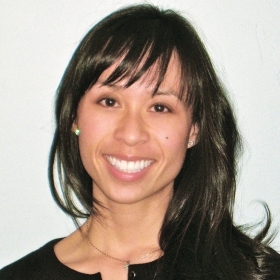In the years after she graduated from Wellesley, Danya Underwood Rivlin ’99 put her professional life on hold to be home with her children. But after seven years as a stay-at-home mom, she was ready to return to the workplace and began interviewing. Last November, having been passed over for a couple of jobs for which she was well-qualified, Rivlin wrote a self-described “cry for help” on a popular alumnae Facebook group. “Can I still have a rewarding professional life ahead of me?” she asked. “Where do I start?”
Rivlin was in good company. She was one of the more than 2 million American women between the ages of 24 and 54 who the United States Department of Labor says are unemployed and looking for work.
Of the dozens of alumnae interviewed for this story, many chose to take time off to care for a child or a sick parent. For others, it was a necessity driven by the high costs of child care or the inflexibility of the work world around the responsibilities of family life. It was a conflicted decision for many, who spoke of their alma mater’s emphasis on women’s professional success and the pull of the College’s motto to minister to a wider community. And whether they saw their time off as a luxury or a necessity, all of them acknowledged it as a privilege not shared by most working women. For Rivlin, even the term “time off” is a misnomer. “Time off from what?” she asks. “I feel like I’ve worked harder in the last seven years than I’ve ever worked in all the rest of my life combined.”
Whatever their feelings about their career breaks, at some point they all wanted to return to work. The statistics, however, can be discouraging. The Center for Talent Innovation, founded by Sylvia Ann Hewlett, an economist and author of the book Off-Ramps and On-Ramps, surveyed thousands of “highly qualified women” in 2004 and again in 2009, after the economic downturn. The latter survey found that 89 percent of respondents said they wanted to return to work, but only 73 percent of them succeeded, and only 40 percent found full-time jobs. A CNN headline in 2013 put the case more bluntly: “Moms ‘opting in’ to work find doors shut.”
Of course, re-entering the labor force is not an issue only for mothers—or even only for women. In today’s economy, career breaks of any sort can seem insurmountable. But just as Wellesley alumnae have earned a reputation for being successful at launching careers, they have proved no less successful at relaunching them.
The Confidence Gap
“The biggest barrier to re-entry is the loss of confidence,” says Kate Wojciechowski Grussing ’86. “A lot of women, when they take time off, obviously they don’t forget everything they know, but they can lose their mojo.” As founder of Sapphire Partners, an executive search consultancy based in London, she has advised companies on employing the talents of returners and has personally met hundreds of such women, including one memorable woman who applied for 81 positions before landing a job. “God bless her that she kept trying!” Grussing says.
Jody Franklin ’83 has probably never lacked for confidence, or mojo. She was chief of staff for Hillary Rodham Clinton ’69 during the 1992 presidential campaign, then a communications advisor in the Labor Department. But in 2000, when her twin daughters turned 2, Franklin quit, and “disappeared into the world of play dates.”
“Staying home was the greatest thing I have ever done,” she says. “I fully embraced the whole mom thing and basically just dropped all of my connections.”
When her marriage ended in 2005, she needed to earn a paycheck again. She networked, did informational interviews. Everyone was helpful. But her break had coincided with one of the most rapid technological changes in history. “The job I ended up getting I almost didn’t get because they just flat out said, ‘We’re hesitant because this is a communications job, and you really have no clue what Twitter is,” she remembers. “And I just said, ‘I’m smart. I’m just as smart as I was 10 years ago, so I’ll figure it out.’”
Franklin’s confidence paid off. After a few years as a ghostwriter, she returned to work full time as the communications director at the Economic Policy Institute in 2009, and has since moved to a higher position at the Brookings Institution. Now that her girls have left for college, she is grateful to have meaningful work. And her position, her pay, and her seniority are none the worse for having taken more than a decade off.
Try, Try Again
But confidence is not the only thing that matters, as Susan Rollins Bannon ’93 discovered. She spent a decade at home with her kids before returning to work as the marketing director for a new online antiques business. She thought a small startup would be the perfect soft re-entry, since she had earned her marketing chops at Unilever, working on big international brands like Dove. But after three months, she was let go. “I realized when I got into it that I was way behind,” she explains. “Truth is, 10 years is a long time, and marketing is a whole new ball game.”
Loriani Santos Eckerle ’02 also found returning to work much harder than she had expected. A lawyer with more than 10 years of experience, she left her firm in 2013, when she had a second baby. A third baby quickly followed, as well as a move from the West Coast to the Midwest. “I thought when I first decided to go back to work that it wouldn’t be so hard to find at least something,” she remembers. “I started applying, and for the first three or four months it was just … crickets.” Her confidence plummeted. When she finally got an interview through an alumnae connection she “bombed it.” “On my ride home, I had already gotten the [email] rejection,” she says.
For both women, the return to full-time work required rejiggering their résumés and retooling their expectations. Bannon’s experience at a small start-up may have been rocky, but it gave her the idea of opening her own small business, A Tailored Space, an online interior design showcase that launched this past April. Eckerle doubled down on her interview skills. “I was so shattered by that last interview that this time I over-prepared. I really tried to knock it out of the park,” she says. She followed the tactics recommended on the popular blog The Interview Guys and learned to market her time off as an asset. It worked. She started as an in-house lawyer with Wells Fargo in May.

The 40-Year-Old Intern
When Edie Harper Beer ’94 decided to return to work in 2011 after staying home with her three daughters, she knew she had more than a confidence problem. She had a huge skills gap that she would not have the opportunity to fill on the job. She was a computer programmer who hadn’t coded a single line in a decade.
Beer made the bold move to put her youngest child, then 2, in part-time day care, so she could brush up on her skills. She took a free programming course online through MITx, then applied for a corporate “returnship” program at Goldman Sachs.
“I had to run out to Marshalls and buy a suit that would fit to go to the interviews,” she laughs. “When I found out they were going to pay me to do it, I thought I was going to fall over dead.”
Corporate returnships are a relatively new phenomenon, but they are gaining steam, particularly in the financial services and engineering sectors. “The advantage in these scenarios is that it allows the hiring company to base their decision on recent work samples, rather than a series of interviews,” says Carol Fishman Cohen in her popular TED talk on relaunching a career, titled “The 40-Year-Old Intern.” “It is a testing-out period that removes the perceived risk.” Cohen is the co-founder of iRelaunch, which bills itself as “the leading career reentry resource.”
For 10 weeks, Beer and a cohort of 20 other returners were dropped right into pre-existing teams in technology, operations, and finance. “I came out of that with such an incredible feeling of confidence, because I did it. I came back. I held my own. I delivered. It was good quality,” she says.
Still, a full-time job remained elusive, and she felt that her skills were not where they should be to land her the kind of job she wanted. So she enrolled in Hacker School, a self-directed study group for programmers. By the end of the program, she had learned a new programming language, made a host of new contacts, and published an up-to-date portfolio of code on the programming website Github. “That was the tipping point,” she said. Although her first job back was a step down in seniority and pay from positions she had held before her career break, she is now back at her previous level.
“Another barrier is swallowing your ego,” says Grussing, the headhunter. “Realizing, ‘All right, I may have been a partner at a law firm, but I might not get hired back where I left off. So I need to be comfortable taking a project or a returnship or joining a firm that may not be as blue chip as the one I left,’ but seeing it as a stepping-stone.”
“Finding that first job was really difficult,” Beer says. “But after that it was like I hadn’t been gone.”
Network, Network, Network
With a background in human resources, Amita Rao ’05 knew the importance of networking in landing a job, but even she was surprised at how critical it would prove to her re-entry into the workforce. In May 2013, she was one month shy of graduating from a master’s program in HR in Atlanta when she got the call that her mother had a traumatic brain injury after having been hit by a bus.
She dropped everything to move home to New York, where her life revolved around her mother’s care and medical appointments. “It was very much like raising a child really, really quickly,” she says. “She needed to relearn everything from scratch: from how to sit up in bed to holding a fork to how to swallow. I taught her her ABCs.” After a year, her mother had regained some independence, and Rao was ready for some herself, with the stipulation that whatever job she took needed to be in New York and have a great deal of flexibility because she was still her mother’s support system and legal guardian.
She started by telling everyone she knew that she was looking to go back to work. “This is something I advocate for others: that if you want to work, then 80 percent of your job search should be in person and only 20 percent should be online.” She was specific in describing the kinds of work she was looking for, too.
“I can’t emphasize enough how important networking is,” says Christine Yip Cruzvergara, Wellesley’s new associate provost and executive director for career education. “It was important the first time you got a job, and every time since, and it will be extremely important when you are thinking about re-entering the field.”
Wellesley is known for the strength of its alumnae network and for the willingness of its graduates to help each other. These days, it is easier than ever to connect through the College’s career-education office, the online alumnae directory, regional and special interest alumnae groups, and the active alumnae communities that have sprung up on social media. And all of the services offered students are also available to alumnae.
Rao had long been active in the Wellesley community Facebook group and Wellesley in the Workplace. “Pretty much everyone on those groups knew I was looking for a job,” she says. One alumna, Asha Sundararaman ’04, messaged her about an opening for a recruiter in her organization, Orbis, an international nonprofit focused on ending blindness.
“Being in HR, I know how this works,” says Rao. “It’s better to have someone refer you, to have your network move your résumé along, than submit it into a black hole.” She left a message on the hiring manager’s voicemail that morning and was hired by the afternoon. All told, she had applied for no more than five or six positions before landing a temporary position with the salary she wanted and the flexibility she needed.
Ultimately, Rao’s role became permanent, and, in 2016, she was promoted to senior talent manager. “This opportunity that sort of was a fluke, has been really, really great for my career,” she says.

Take a Risk
Carrie Kauslick Coombs ’81 could be the poster child for relaunching a career. She has done it twice. By 1997, she had a focused, linear career in financial and professional services that had taken her from New York to London, when, in her words, “the fourth nanny in four years blew up.” The following week, she quit to stay home with her two young sons. She was a year away from making partner—a disappointment that clearly haunts her nearly 20 years later.
While at home, she did some part-time contract work with her previous employer, to avoid gaps in her résumé. When her youngest child started school two years later, she was ready to jump-start her career, and it was another London-based Wellesley alumna, Shamsa Rana ’92, who provided an on-ramp. “She was my bridge into the most lifesaving, fantastic situation,” Coombs says.
For the next six years, she was on retainer at KPMG from 9:15 a.m. to 3:01 p.m., four days a week, not including holidays—a schedule she kept until her sons left home.
Coombs’ history follows the template of the “accordion career,” which expands or shrinks as needed. “The moral of the story is I kept my hand in, and the network that Wellesley provided me gave me the ability to keep my skills honed, use them, and find an employer who was willing to use them as flexibly as I needed,” she says.
But her story doesn’t end there.
While at KPMG, Coombs met a senior executive who was so impressed with her sage advice that he asked her to be his “executive coach.” She initially demurred, but months later he approached her again with a formal offer. The field was so new there were only two books on the topic in all of London. Coombs read them both over the weekend and on Monday got to work.
For the next 10 years, she built her clientele alongside her strategy work and became professionally accredited, before turning to coaching full time. She now operates her own executive-coaching firm, Coombs Martin, in London, with a full roster of clients at the board and senior-management level.
“Take a risk!” she exhorts. “When a door opens, there is a reason why that opening feels like a vacuum. Very few people have a planned career. Most people have a career that’s like a golf game. You just hit the ball and see where it lands. And there are opportunities where it lands.”
Know Thyself
Few of the women interviewed for this story did a complete 360-degree return to the careers they had left. For some, the old careers were no longer fulfilling or had been a bad fit to begin with. For others, their time away had changed them, and they sought new professions better suited to the women they had become.
Cheryl Currie Dill ’83 explains how she weighed the options for “the second half of my life,” after spending 20 years as a stay-at-home mother of four: “Things I took into consideration when choosing a career were: What did I have to offer from my life experience? What could I do for many years that wouldn’t be too taxing on my body and that I wouldn’t be forced to retire from at age 65? And in what career would my age not be a detriment?” She settled on clinical psychology, and after earning a master’s degree, found work six years ago in a private, nonprofit mental-health agency in Rhode Island.
Dill did a “skills assessment”—something Cruzvergara recommends as the first step on her checklist for relaunching (see sidebar below, “How to Head Back to Work”). “It’s having a conversation with yourself, and assessing how you want to move forward,” Cruzvergara explains. “Because that’s the foundation you’re going to build the rest of your strategy on.” Many tests and assessment tools are available online, including the Life Values Inventory, the Gallup StrengthsFinder, or one of many inventories that measure emotional intelligence.









We ask that those who engage in Wellesley magazine's online community act with honesty, integrity, and respect. (Remember the honor code, alums?) We reserve the right to remove comments by impersonators or comments that are not civil and relevant to the subject at hand. By posting here, you are permitting Wellesley magazine to edit and republish your comment in all media. Please remember that all posts are public.